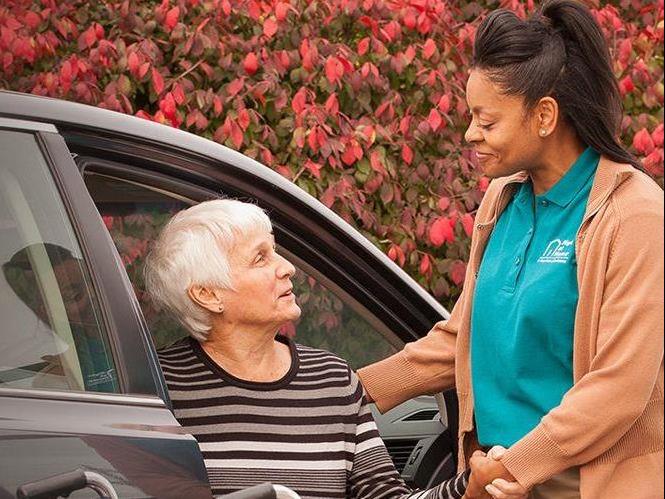

Right at Home's Enhanced Protocols Help Combat Coronavirus
Enhanced Protocols in Place to Slow the Spread of COVID-19
As we continue to monitor the evolving COVID-19 pandemic, we wanted to check in with you and provide updates that we hope will deliver some comfort. On a global level, we continue to be encouraged that potential exposure remains lowest for those who can remain in their homes with limited outside contact. Our team is fortunate to be connected to an international network of Right at Home offices that are working together with the advice of the Centers for Disease Control and Prevention (CDC) and other world-renowned organizations.
To further support you during this time, we have implemented enhanced protocols and compiled several tips and resources for your reference as we navigate the coming weeks.
Enhanced Protocols
- NEW: ALL clients and caregivers will be asked screening questions recommended by the CDC before each shift, increasing our once-daily touchpoints to multiple-daily touchpoints where applicable.
- NEW: All new client and caregiver introductions will not be done in person, unless absolutely necessary.
- NEW: Care plans will be shared with providers via phone instead of face to face in the home or facility.
- NEW: Office staff will be working remotely and/or only essential staff will be physically reporting to our office to limit unnecessary contact with caregivers — this will NOT impact our availability to you.
- NEW: Updated COVID-19 trainings have been made available for all caregivers and staff to complete.
- According to CDC guidelines, caregivers will be removed from the schedule and asked to contact their physician if showing COVID-19 symptoms.
- According to privacy guidelines, caregivers will report any client potential COVID-19 symptoms to the office immediately for further investigation and, if needed, contact with family.
- Caregivers will wash their hands for a minimum of 20 seconds upon arrival to a client’s home or facility.
- Caregivers will continue frequent and thorough handwashing throughout each visit and during their time outside of caregiving.
- Caregivers will encourage clients to participate in frequent and thorough handwashing.
- Caregivers will avoid touching both the client’s face and his/her own face with unwashed hands.
- Caregivers and clients are encouraged to assist in disinfecting the client’s home or space in a facility.
- Caregivers will be provided personal protective equipment (PPE), such as gloves and masks, as necessary.
Important Considerations for You
- Contact our office to make sure your emergency contacts are up to date.
- Maintain a thorough supply of your medications, groceries (especially nonperishable items) and medical supplies.
- Contact your medical provider to determine options for extra medications or utilize mail-order prescription delivery services.
- Contact our office if you need groceries or medical supplies, as we may be able to provide assistance, work with your family, or direct you to community resources that can help.
- Remain home or in your facility as much as possible and avoid all unnecessary outside contact.
- Beware of scams targeted at vulnerable populations during this time:
- Look out for groups acting as medical organizations offering COVID-19 vaccines and requiring over-the-phone payments to receive doses.
- Do not click on any pop-up offers regarding COVID-19 that you do not recognize.
- Avoid charity scams that claim to help COVID-19 victims and their families along with investment schemes involving research for the development of a vaccine.
- Be leery of any phone call offers to disinfect your home, especially those that require over-the-phone payments.
- Utilize globally and nationally recognized sources for COVID-19 information, such as the Centers for Disease Control and Prevention, World Health Organization.
Personal Wellness Recommendations
- Where practical, practice social distancing by avoiding group gatherings and maintaining your distance (approximately 6 feet) from those not providing direct care.
- Take care of yourself by practicing self-care techniques such as meditation, deep breathing, stretching, exercise (if able), healthy eating and good sleep habits.
- Stay connected to friends and family via text messaging, phone and video calls.
- Limit media exposure to reduce feelings of anxiety.
- Read books, listen to music or podcasts, watch a happy movie, or step outside briefly for fresh air (if safe to do so).
Our hearts are with you and your loved ones in this time of uncertainty. We know you may feel anxious, and we will continue to do everything in our power to support you. Please don’t hesitate to reach out to our team with any questions or concerns, or simply if you just need someone to talk to. We are here for you.



